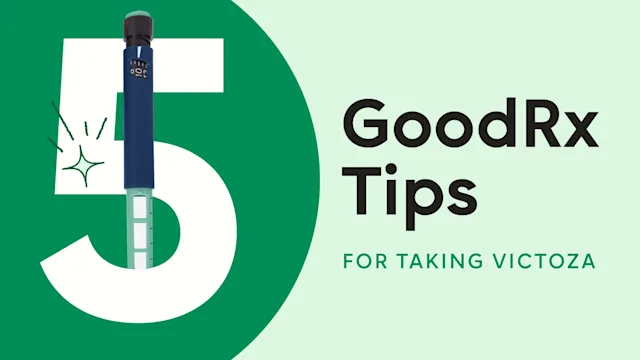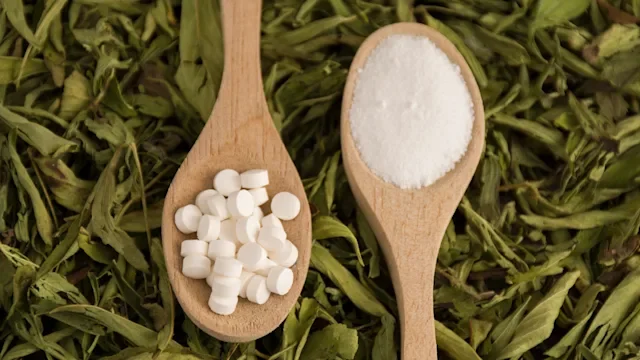Key takeaways:
Some common over-the-counter cold medications can make diabetes harder to manage.
Certain cold medications can raise or lower your blood glucose. Some medications can also interfere with continuous glucose monitors.
If you have diabetes, it’s important to have a plan of action in place if you catch a cold. This will help you know what to do and how to recover faster.
If you have diabetes and catch a cold, some of the medications used to treat it can make your diabetes harder to manage. Some over-the-counter (OTC) cold medications can affect your blood glucose level, making it harder to keep in the normal range. Also, the infection itself can cause your blood sugar levels to go up.
If you’re living with diabetes, it’s important to have a plan of action before catching a cold. In fact, there are even cold medications that are better than others for people with diabetes. Let’s take a closer look at which cold medications are safe for you to take to feel better and reduce your symptoms.
What medication can you take for a cough with diabetes?
If you have diabetes, you’ll want to look for cough medications without added sugar or alcohol. Medications you can use may not be labeled as “diabetic cough suppressant” or a “diabetic cough syrup.” But, there are cough medications for people with diabetes that will suppress your cough without added sugar. The two main ingredients in OTC cough medications to look for are:
Guaifenesin, which loosens mucus
Dextromethorphan, which quiets your cough
You can use these medications separately, or you can find them combined. Some common combination cough medications for people with diabetes include:
Robitussin Sugar-Free
Diabetic Tussin
Safetussin
Scot-Tussin
Cough syrup is a common remedy for colds with cough because it can coat the throat and soothe a scratchy throat, too. Just try to make sure you use the sugar-free options when possible.
What medication can you take for a stuffy nose with diabetes?
Treating nasal congestion with OTC medication when you have diabetes can be a challenge, but there are a few options. Your best bet is to use treatments applied to the nose directly. They are less likely to have an effect on your blood sugar. Stuffy nose remedies you may want to try include:
A neti pot
Saline nasal sprays
Steroid nasal spray (like Nasacort)
What sore throat medication can you take when you have diabetes?
People with diabetes should choose sore throat medications that don’t have added sugar. Fortunately, there are many sugar-free sore throat medication options, like:
OTC pain relievers: ibuprofen, acetaminophen, naproxen
Numbing medicines: Chloraseptic spray, benzocaine/menthol (Cepacol) lozenges
Coating agents: Ricola sugar-free drops, Luden’s sugar-free throat drops
Cold vs. allergies: Take this quiz to find out what’s likely causing your symptoms.
Cold medication and high blood pressure: Here are some medications that can raise your blood pressure.
Diabetes and infections: Learn more about why people with diabetes are at increased risk of developing infections.
Be sure to talk with a healthcare professional before using numbing medications containing benzocaine — especially in children. In rare cases, its use can lead to dangerous complications and lower the oxygen level in the blood.
What medication can you take for pain and fever with diabetes?
In general, OTC medications to reduce pain and fever won’t affect your blood glucose level if you have diabetes. But if you use a continuous glucose monitor (CGM), certain medications can cause inaccurate glucose readings. This means your glucose level could be perfectly normal, but you may have an inaccurate reading.
OTC medications like ibuprofen (Advil) don’t seem to affect CGM readings. They can be used safely with diabetes for pain and fever relief.
Read more like this
Explore these related articles, suggested for readers like you.
Can you take antihistamines for cold symptoms with diabetes?
Antihistamines aren’t effective for cold symptoms when used alone. This is true for people with and without diabetes. Antihistamines may also cause you to be drowsy. Some people do experience cold symptom relief when they take antihistamines combined with a decongestant like pseudoephedrine (Sudafed). But Sudafed isn’t a great option for people with diabetes, as we’ll discuss below.
Which cold medications should you avoid if you have diabetes?
You may want to avoid certain cold medication ingredients when you have diabetes. Let’s take a closer look at cold medications that may affect your blood sugar level.
Cough syrups
A lot of cough syrups have added ingredients that can make diabetes harder to manage. Be sure to check the label of your cough syrup for ingredients like:
Sugar
Corn syrup
Honey
Alcohol
If you must take a cough syrup with added sugar, make sure to take the extra carbohydrates into account for your meals or when deciding how much diabetes medication you need to take.
Decongestants
Pseudoephedrine (Sudafed) is a common OTC decongestant, but it may raise your blood glucose levels. Most nasal decongestant sprays — like oxymetazoline (Afrin) — also carry a warning for people with diabetes.
If you do use them, make sure you keep track of your blood glucose readings. That way you can adjust your medications as needed.
Pain and fever reducers
Acetaminophen (Tylenol) and salicylic acid (aspirin) are common treatments for fever, sore throat pain, and aches. You might wonder, “Can diabetics take Tylenol or aspirin?”
Surprisingly, both can interact with certain CGMs to cause abnormal readings. Taking acetaminophen when you have a cold may cause your CGM to have a false high reading. Meanwhile, aspirin may cause your glucose level to appear low.
You may need to check your blood sugar with a glucometer (finger prick) rather than a CGM if you decide to use aspirin or acetaminophen for your cold symptoms. You’ll also want to check the labels of OTC cold medications, as these medications are often found in them.
How does illness affect your blood sugar?
When you’re sick, it can be hard to keep your blood sugar in the normal range. The stress of illness can trigger the release of hormones that cause your blood sugar levels to rise. And sometimes, illness can cause a lack of appetite, and your blood glucose levels may plummet. It can be a delicate balancing act to manage your blood sugar when you’re sick, even if you’re taking your diabetes medications as prescribed.
If you do get sick, it’s important to check your blood glucose readings frequently (at least 4 times a day). If readings are consistently higher than 250 mg/dL, you need to check your urine ketone levels and let a healthcare professional know. High glucose and urine ketones can be a sign of a serious complication called diabetic ketoacidosis (DKA). This is when your blood sugar levels become dangerously high. It can cause problems ranging from dehydration to kidney failure and even coma and death.
Illnesses like a cold or the flu are an important — but preventable — cause of DKA. If you have an illness, your primary care provider will help you adjust your diabetes medications so that you can avoid DKA.
Tips for eating and drinking to stay hydrated when sick if you have diabetes
It’s important to get adequate nutrition and stay hydrated when you have a cold — especially if you have diabetes. If you’re sick and not eating, this can mean big changes to your diabetes medication routine.
When you have a cold, try your best to eat and drink as you normally do. But if you have a poor appetite and your blood sugar level is low, try one of these options for a quick boost:
Juice
Crackers
Toast
Soup, broth, or bouillon
Frozen ice pops or sherbet
Regular gelatin
Yogurt or milk
Regular soda
When should you get medical care if you have diabetes and a cold?
If you have diabetes and a cold, and your symptoms aren’t improving, you should let a healthcare professional know. Get medical care right away if you:
Have trouble breathing
Have urine ketones
Are unable to keep fluids down
Lose more than 5 lbs while sick
Can’t keep food down for more than 24 hours
Have a temperature over 101°F (38.3°C) for more than 24 hours
Are confused
Have a glucose level lower than 60 mg/dL
Frequently asked questions
Mucinex and Mucinex DM are safe for diabetics when taken as directed. Make sure to read the label when choosing a liquid version to ensure there’s no added sugar.
It’s always important to read labels if you’re living with diabetes. Regular Nyquil contains alcohol, sugar (fructose), and acetaminophen. The Vicks brand markets a version of Nyquil for people with diabetes that doesn’t have alcohol or sugar, but it does have acetaminophen. If you’re using a CGM that gives false readings with acetaminophen, make sure to check your glucose with a finger stick.
Zyrtec (cetirizine) is a safe option for people with diabetes who have allergy symptoms. Keep in mind that Zyrtec can make you sleepy.
Mucinex and Mucinex DM are safe for diabetics when taken as directed. Make sure to read the label when choosing a liquid version to ensure there’s no added sugar.
It’s always important to read labels if you’re living with diabetes. Regular Nyquil contains alcohol, sugar (fructose), and acetaminophen. The Vicks brand markets a version of Nyquil for people with diabetes that doesn’t have alcohol or sugar, but it does have acetaminophen. If you’re using a CGM that gives false readings with acetaminophen, make sure to check your glucose with a finger stick.
Zyrtec (cetirizine) is a safe option for people with diabetes who have allergy symptoms. Keep in mind that Zyrtec can make you sleepy.
The bottom line
Colds are normally not very serious. But some cold medications can make diabetes harder to manage. Some cold medications can raise your blood sugar or make your glucose readings inaccurate. Always read the labels and check the ingredients on any cold medication you take when you have diabetes.
Fortunately, taking care of a cold with diabetes doesn’t have to be complicated. Have a plan for sick days ahead of time so you’ll know what medications you can take and which ones you should avoid.

Why trust our experts?


References
American Academy of Family Physicians. (2018). OTC benzocaine teething products not safe for young children.
American Diabetes Association. (n.d.). Preparing for sick days.
Centers for Disease Control and Prevention. (2024). Managing sick days.
Ebell, M. H., et al. (2004). Antihistamines for the common cold. American Family Physician.
Głowacka, K., et al. (2021). Pseudoephedrine — benefits and risks. International Journal of Molecular Sciences.
Mizrachi, A., et al. (2012). Effect of intranasal steroids on glucose and hemoglobin A1c levels in diabetic patients. American Journal of Rhinology and Allergy.
National Institute of Diabetes and Digestive and Kidney Diseases. (2023). Take care of your diabetes during sick days and special times. National Institutes of Health.

















